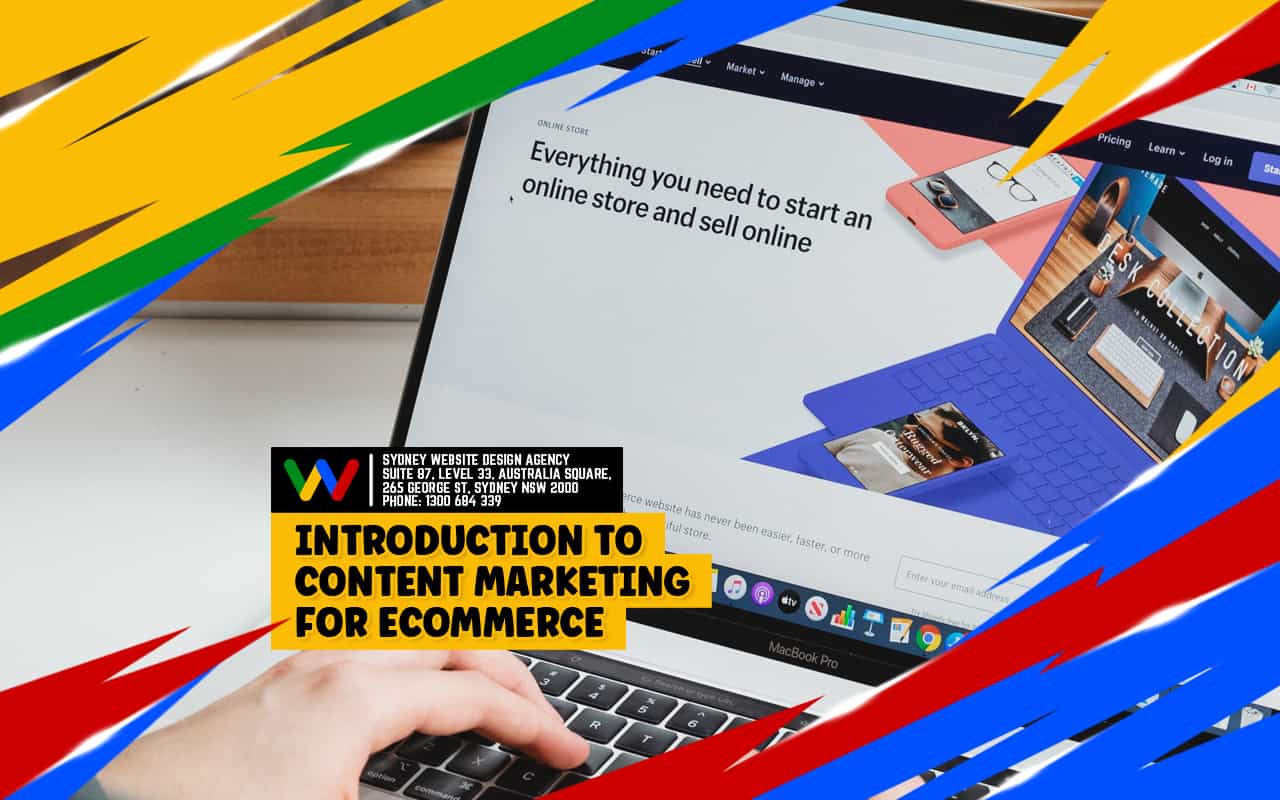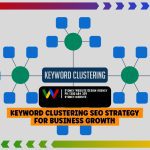How Content Marketing Can Supercharge Your eCommerce
Content marketing has become an essential strategy for eCommerce businesses. Those who are looking to attract and retain customers. Content marketing allows eCommerce businesses to reach their target audience more effectively by providing helpful information that is tailored specifically for them.
Content marketing helps increase organic website traffic, which can lead to more sales over time. With the right content strategy already in place, a content marketing team can help any eCommerce business grow its customer base and generate profits. In this blog post, we’ll explore what content marketing for eCommerce websites is. Moreover, how it can help grow your business.
Introduction
Content marketing for eCommerce businesses is an effective way to create and promote products and services, engage customers, and build brand awareness. It involves creating valuable content that can be used to attract potential customers, educate them about the product or service they are interested in purchasing, and ultimately drive them to make a purchase.
Content marketing can include creating blog posts, email campaigns, infographics, videos, e-books, social media posts, and more. Each piece of content should be unique and tailored to the target audience, as this will help make it stand out from the competition. Content should also provide information that is relevant to the product or service being sold, as this will help the audience understand why they should purchase from the business. Content should also be regularly updated and optimised for search engines so that it can reach a wider audience.
Table of Contents
- Introduction to Content Marketing for eCommerce
- Benefits of Content Marketing for eCommerce Businesses
- Types of Content You Can Use in Your Strategy
- Developing a Comprehensive Strategy
- Creating Quality, Valuable Content
- Optimising and Updating Your Content
- Using Analytics to Measure the Success of Your Content Marketing Efforts
- FAQs What is Content Marketing
- Best Practices for Effective eCommerce Content Marketing
Yes, Let’s Grow My eCommerce Business
No, I Don’t Need to Grow My Business
Introduction to Content Marketing for eCommerce

Content marketing is a marketing strategy. It involves creating and sharing valuable, relevant, and consistent content. It is to attract and retain a clearly defined audience—with the ultimate goal of driving profitable customer action. In the context of eCommerce, content marketing plays a vital role in driving traffic. Also in building brand awareness and ultimately increasing sales.
What is Content Marketing for eCommerce Websites?
Content marketing for eCommerce means making valuable and interesting content related to the product. Those that your target customers will like. You can share this content on your website, social media, and other platforms to attract people to your business. This content can be anything from blog articles and posts to videos, as long as it helps your customers and supports your business goals. The goal is to get more people interested in your business and ultimately increase sales.
How Does Content Marketing Work for eCommerce Websites?
Content marketing works for eCommerce websites by attracting potential customers. It is through valuable and relevant content that addresses their pain points or interests. Once they are on your website, you can use a variety of traditional marketing tactics then. This includes email marketing, retargeting ads, and other promotional activities. It is to nurture these leads and eventually convert them into paying customers.
Benefits of Content Marketing for eCommerce Businesses

Content marketing is a strategy. It involves creating and sharing valuable, relevant, and consistent content. It is to attract and retain a defined audience, with the ultimate goal of driving profitable customer action. In the context of eCommerce, using content marketing strategies can provide a range of benefits to businesses looking to grow and expand. Here are some of the key benefits of content marketing for eCommerce businesses:
Increased Website Traffic
One of the primary benefits of content marketing is the ability to attract more traffic to your website. You can use content marketing institute to drive more visitors to your site, which can lead to increased sales and revenue. It is by creating high-quality, engaging content. Those that address the needs and interests of your target audience.
Improved Search Engine Rankings
Content marketing can also help improve your search engine rankings. This can further increase your website traffic. You can improve your website’s visibility on search engines like Google, which can make it easier for potential customers to find you. It is by creating content that is optimised for specific keywords and phrases.
Increased Brand Awareness and Credibility
You can establish yourself as a thought leader in your industry and build trust with your target audience. It is by consistently creating and distributing valuable, and relevant content. This can help increase your brand awareness and credibility inbound marketing. This makes it more likely that potential customers will choose to do business with you.
Better Engagement with Customers
Content marketing can also help you engage with your customers and build relationships with them. You can encourage them to interact with your brand and become more loyal to your business. It is by creating content that addresses their needs and interests.
Higher Conversion Rates
Finally, content marketing can help improve your conversion rates. It is by providing potential customers with valuable information and resources. Those that help them make informed purchasing decisions.
You can help them move through consideration stage of the sales funnel more quickly and effectively. It is by creating content that addresses their pain points and answers their questions. Content marketing is a powerful tool for eCommerce businesses looking to grow and expand.
Types of Content You Can Use in Your Strategy

In the context of eCommerce, there are several types of content marketing examples that businesses can use. It is to effectively engage with their target audience and drive sales. Here are some of the most popular types of content that you can use in your content marketing strategy:
Blog Posts
Blogging is one of the most popular forms of content marketing for eCommerce websites. You can attract more traffic to your site, establish yourself as an industry leader, and improve your search engine rankings. It is by creating high-quality blog posts that provide value to your target audience.
Product Reviews
Product reviews are a great way to provide valuable information to potential customers. It can help them make informed purchasing decisions. You can increase trust and credibility with your audience and improve your conversion rates. It is by creating detailed and honest reviews of your products.
How-to Guides
How-to guides are another effective type of content for eCommerce businesses. You can provide value to your audience and position yourself as an expert in your field. It is by creating step-by-step guides that show your customers how to use your products or solve common problems.
Videos
Videos are becoming increasingly popular as a content marketing tool for eCommerce businesses. You can increase engagement and drive more traffic to your website. It is by creating engaging and informative videos. Ones that showcase your products or provide helpful information to your audience.
Infographics
Infographics are another popular type of content. It can help eCommerce businesses communicate complex information. It is in a visually appealing and easily digestible format. You can increase engagement and improve your brand awareness. It is by creating infographics that provide useful information or data.
Social Media Posts
Social media is a powerful tool for eCommerce businesses looking to connect with their target audience. You can increase your reach, drive more traffic to your website, and build a community of loyal followers. It is by creating engaging and shareable social media posts.
There are many types of content. Those that eCommerce businesses can use to effectively engage with their target audience to generate interest and drive sales.
Developing a Comprehensive Strategy

Developing a comprehensive content marketing strategy is essential for eCommerce businesses. Those who are looking to leverage the power of content to grow their business. Here are some key steps to consider when developing a content marketing strategy for your eCommerce website:
Define Your Target Audience
The first step in developing a content marketing strategy is to define your target audience. Who are they? What are their interests, pain points, and needs? Understanding your audience is essential for a strategic marketing approach focused creating content. One that resonates with them and drives engagement and sales.
Set Your Goals
Once you’ve defined your target audience, it’s important to set your goals. What do you want to achieve with your content marketing strategy? Do you want to increase website traffic, improve search engine rankings, build brand awareness, or drive more sales? Setting clear and measurable goals is essential for creating a why content marketing strategy that is focused and effective.
Choose Your Content Types
The next step is to choose the types of content that you will create. As discussed earlier, there are several types of content that eCommerce businesses can use. These include blog posts, product reviews, how-to guides, videos, infographics, and social media posts. Decide the types of content that are most relevant and valuable to your target audience.
Develop a Content Calendar
Once you’ve selected your content types, it’s significant to develop a content calendar. A content calendar is a schedule that outlines when and where you will publish your content. This helps you stay organised and ensures that you are consistently creating and publishing content.
Promote Your Content
Creating great content is only half the battle. Once you’ve created your content, it’s important to promote it. This can include sharing your content on social media and sending it to your email list. This can also include reaching out to influencers or other websites in your industry to share your content.
Measure and Analyse Your Results
Finally, it’s significant to measure and analyse your results. Use analytics tools to track your website traffic, engagement, and sales. This will help you understand what is working and what isn’t, so you can adjust your strategy accordingly.
Developing a comprehensive content marketing strategy is essential for eCommerce businesses. Those who are looking to grow and expand.
Creating Quality, Valuable Content

Creating quality, valuable content is essential. It is a crucial aspect of a successful content marketing strategy for eCommerce websites. Here are some tips to help you create content that resonates with your target audience and drives engagement and sales:
Understand Your Audience
It’s critical to understand who they are, what their interests are, and what their pain points are. It is to create content that resonates with your target audience. Conducting keyword research, and using data analytics tools can help you gain insights into your audience. It can help you create content that meets the audience’s needs and interests.
Provide Value
One of the most indispensable aspects of creating high quality content, is providing value to your audience. This can include providing helpful information, solving problems, or entertaining your audience. By creating content that provides value, you can establish trust and credibility with your audience. This can lead to increased engagement and sales.
Be Original
To stand out in a crowded online marketplace, it’s significant to create original and unique content. Avoid copying or plagiarising content from other websites. Instead, focus on creating content that is fresh, original, and relevant to your audience.
Use Visuals
Visuals can be a powerful tool in creating engaging content. Use high-quality images, videos, and infographics. It is to supplement your written content and make it more visually appealing and interesting.
Be Consistent
Consistency is key when it comes to content marketing. Develop a schedule for creating and publishing content, and stick to it. This will help you build a loyal following. This will establish yourself as a reliable source of information and entertainment for your audience.
Stay Up-to-Date
It’s crucial to keep yourself informed about the latest trends and advancements in your industry. This will aid in producing relevant and timely content, as well as staying ahead of your competitors. Additionally, it can help to identify outdated technologies and misconfigurations that have been overlooked or are impacting your website’s performance.
Performance audits should be done regularly in order to consistently evaluate the state of your website hosting. This ensures that any issues or potential problems are quickly identified and corrected, resulting in better performance for both you and your visitors.
You can create content that resonates with your audience and drives engagement and sales. It is by understanding your audience and providing value. Furthermore, by being original, using visuals, being consistent, and staying up-to-date.
Optimising and Updating Your Content

Optimising and updating your content is a significant part of a successful content marketing strategy for eCommerce websites. Here are some key steps to consider when optimising and updating your content:
Conduct a Content Audit
The first step in optimising and updating your content is to conduct a content audit. This involves reviewing your existing content. It is to identify what is working and what isn’t, and determine which pieces of content can be updated or repurposed.
Update Outdated Content
Updating outdated content is a great way to keep your website fresh and relevant. This can include updating product descriptions and revising blog posts. This can also include adding new information to existing landing pages.
Optimise for Search Engines
Optimising your content for search engines can help increase your website traffic. It can help improve your organic search and engine rankings. This can include using relevant keywords and optimising your meta descriptions. Also, using internal linking to improve your website’s structure.
Repurpose Content
Repurposing content is a great way to make the most of your existing content. This can include turning blog posts into infographics and creating videos from product reviews. Also, using customer reviews to create social media posts.
Test and Refine
Testing and refining your content can help you identify what is working and what isn’t. This can include conducting A/B testing on your website or social media posts. Also, analysing your website traffic and engagement and making adjustments as needed.
Be Always Relevant
Finally, it’s important to stay up-to-date with the latest trends and developments in your industry. This will help you create content that is relevant and timely, and will help you stay ahead of your competitors.
Using Analytics to Measure the Success of Your Content Marketing Efforts

Using analytics to measure the success of your content marketing efforts is crucial. It helps in in understanding the effectiveness of your strategy. It also helps you make data-driven decisions to improve your current content marketing efforts. Here are some key steps to consider when using analytics to measure the success of your content marketing efforts:
Define Your Metrics
The first step in using analytics to measure the success of your content marketing efforts is to define the metrics that you want to track. Some common metrics for content marketing include website traffic, engagement, conversion rates, and revenue.
Set Goals
Once you have defined your metrics, it’s important to set goals for each metric. This will help you track your progress. These also determine whether your video content marketing and digital marketing efforts are meeting your business objectives.
Use Analytics Tools
There are a variety of analytics tools available. It that can help you track your metrics and measure the success of your content marketing efforts. Google Analytics is a popular tool that can help you track website traffic, engagement, and conversion rates. Social media analytics tools can help you track engagement and audience growth on social media platforms.
Analyse Your Data
Once you have collected data from your analytics tools, it’s significant to analyse the data to identify trends and patterns. This can help you understand which types of content are resonating with your audience. Also, which channels are driving the most traffic and engagement.
Make Data-Driven Decisions
Finally, it’s significant to use the insights gained from your analytics. It is to make data-driven decisions about your content marketing strategy. This can include adjusting your paid ad content marketing strategy to focus on the types of content that are driving the most engagement. Also, investing more resources in the channels that are driving the most traffic and revenue.
FAQs What is Content Marketing

Why is a solid content marketing strategy essential for ecommerce sites?
How can ecommerce content marketing help increase customer loyalty?
What are some effective ecommerce content marketing examples?
How does content creation impact search engine results?
Why should ecommerce companies invest in a youtube channel?
What role does social media marketing play in an ecommerce content strategy?
How can ecommerce brands avoid common content marketing mistakes?
How can educational content enhance your ecommerce content marketing strategy?
What are some content marketing tips for improving online sales?
How can ecommerce brands leverage user generated content?
These FAQs should help you understand how to build a successful ecommerce content marketing strategy that drives traffic, engages your audience, and boosts sales. Whether you’re just starting out or looking to refine your approach, these strategies and content marketing tips will set you on the path to success.
Best Practices for Effective eCommerce Content Marketing

To create content that resonates with your target audience, it’s significant to understand their needs, preferences, and pain points. Conducting market research and customer surveys can help you identify the topics and formats that are most appealing to your audience.
A content calendar is a schedule that outlines the topics, formats, and publishing dates for your content. This helps ensure that your content is consistent and relevant, and that you’re meeting your marketing objectives.
You can create a strategy that engages your audience, drives traffic to your website, and ultimately increases sales and revenue for your business. It is by following these best practices for effective eCommerce content marketing.



















































